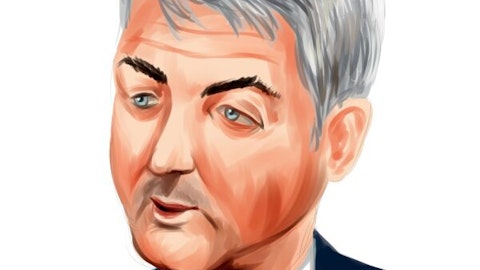In this article, we discuss 5 housing stocks to watch as price declines continue. If you want to see more stocks in this list, check out “Globally Synchronized Downturn”: 10 Housing Stocks to Watch as Price Declines Continue.
5. CBRE Group, Inc. (NYSE:CBRE)
Number of Hedge Fund Holders: 42
CBRE Group, Inc. (NYSE:CBRE) is a Texas-based commercial real estate services and investment company. The company specializes in property sales and mortgage services, as well as construction management, marketing, and building engineering. On August 23, CBRE Group, Inc. (NYSE:CBRE)’s board approved a $2 billion increase to its stock repurchase authorization, effective immediately. CBRE Group, Inc. (NYSE:CBRE) is one of the prominent housing stocks to watch as price declines continue.
UBS analyst Alex Kramm on September 21 lowered the price target on CBRE Group, Inc. (NYSE:CBRE) to $86 from $95 and maintained a Neutral rating on the shares as part of a broader research note on Real Estate brokers. The analyst noted that macro uncertainty for the group is rising, though he also sees it as being “priced in” by the stocks.
According to Insider Monkey’s data, CBRE Group, Inc. (NYSE:CBRE) was part of 42 hedge fund portfolios at the end of Q2 2022, compared to 55 funds in the last quarter. Harris Associates is the biggest stakeholder of the company, with 11.5 million shares worth about $845 million.
Here is what Third Avenue Management specifically said about CBRE Group, Inc. (NYSE:CBRE) in its Q2 2022 investor letter:
“Always ones to favor a company’s prospects for long-term wealth creation over its near-term earnings outlook, Fund Management opted to add to the Fund’s position in the common stock of CBRE Group, Inc. (NYSE:CBRE) during the quarter. Held in the Fund since 2020, CBRE is the largest commercial real estate services firm globally with a market-leading position in leasing, property sales, facilities management, and valuation. CBRE is also a major player in investment management (with nearly $150 billion of assets under management) and loan servicing (approximately $340 billion of commercial and multi-family loans under administration). In combination, these segments essentially act as a tax on commercial real estate activity and accounted for more than $27 billion in revenues in the 2021 fiscal year.
Fund Management recognizes that the company’s transaction-oriented business lines (e.g., leasing and sales) are likely to retract from more recent levels. Notwithstanding, CBRE’s business model has evolved significantly in recent years with additions in facilities management, investment management, and servicing leading to substantial “recurring” revenue streams. Further, the company has amongst the most “variable” cost structures in the industry, and it is also incredibly well capitalized with a “net-cash” position. As a result, CBRE seems likely to not only remain profitable when viewed on a group-wide basis but also set to take market share through “lift-outs” from competitors and “bolt-on” acquisitions in ancillary activities.
One emerging area of the commercial real estate market that CBRE seems particularly well-suited to capitalize on is the shift to “flexible” office arrangements. More specifically, the company is serving as a key advisor to corporations as they seek to right-size their real estate footprints with an increased focus on “hybrid” working arrangements (CBRE counts 90% of Fortune 100 companies as clients). It is also a principal investor in Industrious—one of the leading flexible workplace solutions globally, with unmistakable advantages relative to a number of its peers. It is therefore Fund Management’s view that this specific opportunity will be a key driver as the company pursues its 2025 earnings target of $8 per share.”





